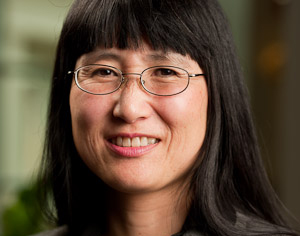When it comes to disaster preparedness, Japan is one of the best in the world.
 |
Shinobu Watanabe-Galloway, Ph.D. |
Shinobu Watanabe-Galloway, Ph.D., a professor in UNMC’s College of Public Health is from Urayasu, a city in western Chiba, Japan, on the border of Tokyo. The city has two parts:
- The original fishing village; and
- The newer landfill portion that adjoins Tokyo Disneyland.
“Many of my friends don’t have sewage, electricity and water. The entire city is full of mud,” Dr. Watanabe-Galloway said. “Because the city is far from the most devastated areas, it gets less attention and help.”
A lot of help needed
This unprecedented disaster requires a global public health response, said Ayman El-Mohandes, M.B.B.Ch., M.P.H., dean of UNMC’s College of Public Health.
“Many individuals and communities will be impacted by this disaster, mental health needs and containment of potential nuclear contamination will remain significant challenges to match rebuilding infrastructure,” he said. “Public health professionals will be needed to monitor the population’s health and provide intervention strategies.”
UNMC leader selected
Chancellor Harold M. Maurer, M.D., appointed Dr. Watanabe-Galloway to coordinate the medical center’s response.
|
|
Reason for the muted response
Efforts to respond to Japan’s crises seem to be less organized and slower compared to disasters that occurred in other countries in recent years. This may be partly due to less direct and urgent request from the Japanese government for international assistance.
“Japanese people are a quiet and resilient people. In our culture, asking for help is embarrassing and considered a sign of weakness. That is why we suffer in silence,” Dr. Watanabe-Galloway said. “As a medical center, we cannot stand by and let hundreds of thousands of people face disease and long-term health concerns without offering aid.”
More information about specific UNMC efforts to help Japan will come soon.
Fantastic article! Dr. Watanabe-Galloway is an amazing leader and with her guidance I hope to help the people of Japan.
Over the years many talented Japanese medical researchers have contributed greatly to research at UNMC and have called Nebraska "home."
Our reaching out to Japan now affirms that the heart of UNMC has always been in the right place. Their home away from home really does care.
Dr. Watanabe-Galloway is the perfect person to lead this effort and I look forward to seeing what can be accomplished with her leadership efforts.
As an international student from Japan at UNMC, I would like to do my best to assist Dr. Watanabe-Galloway who is taking a lead on this relief effort. I truly appreciate Nebraskan people's support, and I know I'm not the only one!